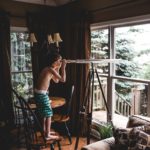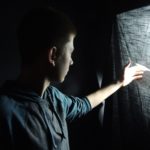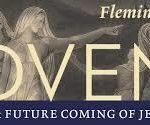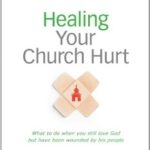I am currently reading Winn Collier’s Holy Curiosity. Chapter 3, entitled “Why are You Afraid? The Grace of Letting Go,” is Collier’s meditation on the question Jesus asks His disciples when they assumed they were drowning in the storm.
In the middle of the chapter, he gave an illustration I thought would be helpful for when I preach on this story.
He writes:
After Jesus woke to the barbarous conditions and his unnerved disciples, he stepped to the ship’s edge and spoke words to the wind. He simply told the wind to stop. And it did. The disciples didn’t know what to do with what they had just seen. “What kind of man is this?†they asked. “Even the winds and the waves obey him.†Authority. It calms a storm, and it is the only remedy for a fearful soul.
Techniques are not what we really need. A pep talk to muster our resolve is not our first remedy. That is the stuff of self-help, continuing the delusion that what we require is just a more courageous version of ourselves. What we really need is one far larger than us, one who will show us that we are not alone and that our fears are not the most powerful truth. We need a God large enough and strong enough to be in control of our precarious life.
In the context of this thought, Collier helps illustrate his point with this:
In Finding Neverland, the wonderful cinematic portrayal of the friendship J. M. Barrie (Peter Pan’s creator) fostered with four fatherless boys, a poignant scene develops near the end. One of the younger boys, Peter (yes, there is a connection), had taken his father’s death and his mother’s subsequent terminal illness the hardest. At his mother’s funeral, he ran away, into the park, so he could hide his emotions and attempt to cope. He resisted any person’s claim on his trust, and his safety, he believed, rested fully on his shoulders. For Peter, his mother’s death confirmed his darkest dread: he was in charge of his well-being. As Barrie approached Peter sitting alone on a remote park bench, Peter struggled to push his short legs to the ground so he could launch from the bench and run further away. But Barrie’s voice, firm and direct, halted his efforts. “Peter, sit down,†he said. The words were short and straightforward. Yet there was something in Barrie’s eyes, something in his heart –something in the way he was stepping into Peter’s chaos –that was life-giving. Barrie’s stance told Peter he was not alone. He was not in charge of his own safety. Barrie was stronger than Peter, and Barrie was here to help. But first, Peter would need to sit down.
This is a simple scene, a man telling a boy to take his seat on a bench. But it is much more. The boy was lost, alone. He needed someone bigger, someone with enough courage to step into his chaos. He needed someone strong enough to handle him and wise enough to know how and when to use his strength.
So many times, I have been on that bench, a little boy wondering if there is anyone bigger than me, big enough to tell me I am not on my own. We have all sat there, and our heart aches for another who is stronger and wiser, to speak with authority, to speak words of hope and life.
I have never seen Finding Neverland. Not sure if I ever will. But I appreciated Collier’s perspective on his point with the use of this visual.
What do you think? Any of you preachers out there with helpful illustrations on the story of Jesus calming the wind and waves?












